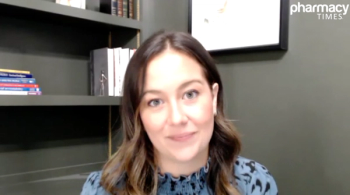
Samantha Picking, PharmD, outlines how Walgreens enhances immunization access through digital innovation, patient engagement, and ongoing pharmacist training.

Samantha Picking, PharmD, outlines how Walgreens enhances immunization access through digital innovation, patient engagement, and ongoing pharmacist training.
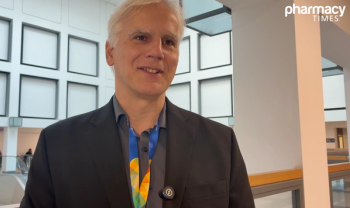
Balazs Halmos, MD, discusses how the COPERNICUS trial aims to build on previous amivantamab studies.
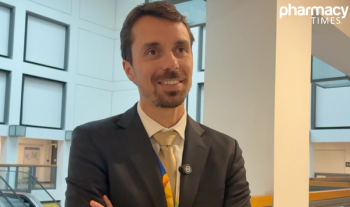
In the ARANOTE trial, darolutamide combined with ADT significantly delayed disease progression and maintained quality of life for patients with metastatic hormone-sensitive prostate cancer, supporting its use as a chemotherapy-free option.
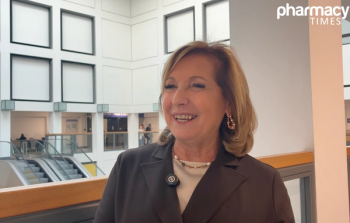
Nicoletta Colombo, MD, PhD, discusses why metronomic chemotherapy dosing and careful regimen design may have driven the success of the KEYNOTE-B96 trial.
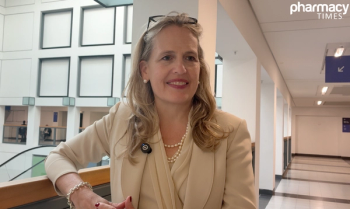
Datopotamab deruxtecan-dlnk improved duration of response by roughly 5 months compared with chemotherapy in first-line mTNBC.
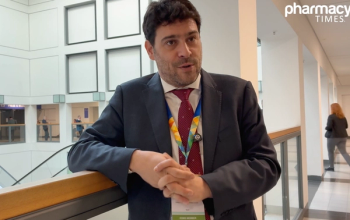
At ESMO 2025, Felix Guerrero-Ramos, MD, discussed SunRISe-1 data showing durable responses and low toxicity with TAR-200, the importance of training in device management, and how future biomarker research may refine patient selection and combination strategies.
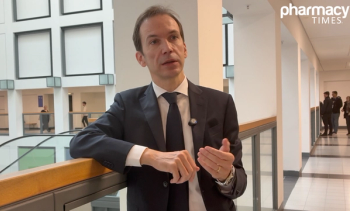
Andrea Necchi, MD, shared SunRISe-4 primary results demonstrating higher pathologic response and relapse-free survival rates with TAR-200 plus sacituzumab compared with checkpoint inhibitor monotherapy, with no new safety signals observed.
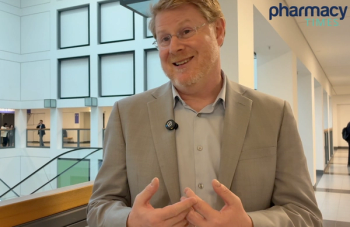
Stephen Freedland, MD, highlighted data showing significant overall survival benefits in the EMBARK trial and discussed the continued role of monotherapy in preserving quality of life for select patients.

Thor Halfdanarson, MD, discussed early results showing favorable response rates and manageable safety with ^212Pb-VMT-α-NET, along with the role of PET imaging in optimizing patient selection for future trials.

Felix Guerrero-Ramos, MD, outlines molecular and pharmacologic findings from SunRISe-1, including the high prevalence of TP53 alterations and the extended drug exposure achieved with the TAR-200 intravesical delivery system.

Oncologist Thor Halfdanarson reviews dose-finding data for the targeted α radioligand therapy [^212Pb]VMT- α-NET, highlighting manageable toxicity, stable renal function, and plans for phase 2 evaluation.

Pranav Garimella, MBBS, MPH, emphasizes that pharmacists are essential partners in managing chronic kidney disease, ensuring safe medication use, adherence, and coordinated care alongside physicians.

Ron Lanton outlines enforcement uncertainty and downstream effects on biosimilars, specialty drugs, and pharmacy supply chains under most favored nation pricing proposals.

Panelists discuss how evaluating quality of life in patients on CDK4/6 inhibitors requires asking open-ended questions beyond just adverse effects to assess social functioning, work capacity, and emotional well-being (with quality of life data showing these agents maintain rather than significantly improve outcomes), and how multidisciplinary care can be optimized through nurse navigators for additional patient touchpoints, coordination with subspecialty colleagues like pulmonology and cardio-oncology for rare toxicities, and utilizing learners and standardized workflows to manage the high patient volume despite limited pharmacist resources.

Panelists discuss how treatment sequencing in early-stage breast cancer requires a stepwise approach, adding one therapy at a time (typically radiation, then hormonal therapy, then CDK4/6 inhibitors, with special considerations for BRCA-positive patients receiving olaparib first), while in metastatic settings the sequencing is more straightforward with first-line CDK4/6 inhibitors plus endocrine therapy, and how patient adherence can be optimized through shared decision-making, detailed toxicity education with graded explanations, frequent health care team touchpoints especially during the challenging first 90 days, and addressing the unique adherence challenges in early-stage patients who are asymptomatic compared to metastatic patients.

Steven Pipe, MD, highlights the growing importance of pharmacists in hemophilia care as new therapies expand treatment complexity and require specialized expertise.

Canomiks enhances consumer trust in the supplement industry through WhatToTrust, a platform evaluating product safety, efficacy, and scientific validation.
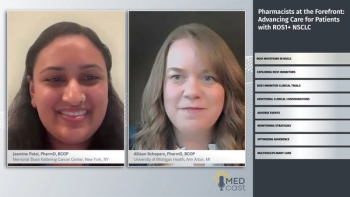
This video explores the evolving treatment landscape for ROS1-positive non-small cell lung cancer (NSCLC), focusing on targeted therapies, clinical evidence for repotrectinib, management of adverse events, and the pharmacist’s role in improving patient care and adherence.

Ron Lanton explains that increased pharmaceutical tariffs could drive up costs, reduce margins, and strain pharmacy supply chains, with few mitigation options available.

Pharmacists emphasize the importance of RSV awareness, testing, and vaccination for older adults and high-risk infants to enhance community health.

An expert discusses how enhanced EHR systems can boost vaccination rates by providing clinical alerts, integrating immunization histories, and enabling automated patient follow-ups—helping pharmacists identify opportunities, reduce missed doses, and improve overall vaccine delivery in retail settings.

An expert discusses innovative strategies to boost vaccine administration efficiency and accessibility—including prefilled syringes with attached needles, ergonomic and labeling improvements, needle-free options, and shelf-stable auto-injectors—all aimed at enhancing provider workflow and patient experience, especially in high-volume or underserved settings.

Pharmacists’ medication expertise strengthens clinical care and supports a more collaborative, team-based approach to patient health.
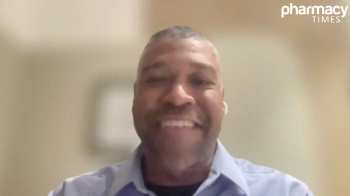
Ron Lanton advises pharmacies to maintain compliance, explore contingency options, and stay engaged with policymakers during the government shutdown.
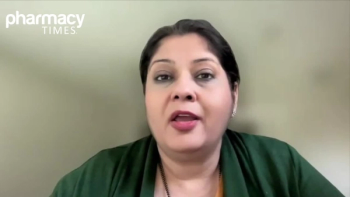
Discover how supplements support women's health during menopause, enhancing well-being and easing symptoms effectively.

Panelists discuss how analysis from the Miami Breast Cancer Conference showing 60% of eligible early breast cancer patients are not receiving CDK4/6 inhibitors reflects disparities between academic and community settings, particularly affecting older patients and those with fewer lymph nodes, while identifying remaining unmet needs including better management of quality-of-life impacting adverse effects like fatigue and diarrhea, reducing the burden of frequent laboratory monitoring, and addressing financial toxicity and administrative barriers that affect both patients and health care staff.

Panelists discuss how they are excited about future CDK4/6 inhibitor data including oral SERDs to replace fulvestrant injections, triplet combinations with newer agents, expansion into HER2-positive settings, and the potential role of ctDNA monitoring, while emphasizing key patient education points such as explaining mechanism of action differences from chemotherapy, managing expectations about common adverse effects, setting parameters for when to contact the care team, and providing resources like ChemoCare while also educating health care teams through primary literature and electronic health record care plans.

Pharmaceutical companies navigate FDA regulations and explore AI solutions to enhance compliance in drug advertising and enforcement.

Christian Ruff, MD, highlights pharmacists as essential clinical partners who help optimize drug selection, dosing, and safety for patients with complex needs.

Pharmacists’ accessibility and expertise make them essential allies for patients managing weight through medication, Donna Ryan explains.